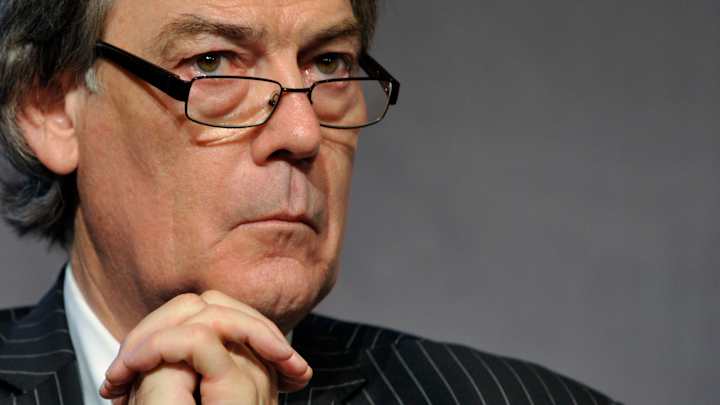WADA: Jamaica's anti-doping program back in order

LONDON (AP) Jamaican officials have done ''exactly what we've asked'' to get their anti-doping program back in order after failing to test their world-beating sprinters in the months ahead of the London Olympics, the director of the World Anti-Doping Agency said Wednesday.
WADA sent a delegation to Jamaica in recent weeks to follow up on recommendations made after last year's audit of the Caribbean island's troubled drug-testing program.
''They've done exactly what we've asked them to do to put their program back into place,'' WADA director general David Howman said. ''That's important for Jamaica and it's important for us to oversee it because of the international interest and the international abilities they've got in athletics.''
Jamaica has produced a slew of world-class track and field athletes who have won 28 medals over the past three Summer Olympics, including 12 at the 2012 London Games.
Howman met with Jamaican government officials in November after the former director of Jamaica's drug-testing agency, Renee Anne Shirley, disclosed there had been a virtual absence of out-of-competition testing for six months before the London Olympics.
All 12 board members of the Jamaican agency, JADCO, resigned in November.
''They're getting there and will be as the months go on,'' Howman said in an interview on the sidelines of the Tackling Doping in Sport conference at Wembley Stadium. ''They've got the commitment from the government. They've got the new board of governors. They've got a new executive director. They've got plenty of money and they're in position to be able to do what they have to do.''
Shirley, who also appeared at the London conference, said she has been ostracized in Jamaica since speaking out and no longer has any business or government contacts in the country. She said the Jamaican agency's new leaders need time to rebuild a solid anti-doping program.
''They are almost starting from scratch,'' Shirley said. ''You have a new board. All testing people are new. All educational people are new. I genuinely believe that they are going to make an effort.''
Howman said WADA's latest visit to Jamaica included members of the Canadian anti-doping agency who are working with the Jamaicans as ''mentors'' to build up their testing program. It will include out-of-competition tests, considered the most effective way of catching drug cheats.
''We're pretty happy with the progress,'' Howman said. ''The area we still want to make sure is enhanced is their results management process, which seems to be dragging on too long.''
Eight Jamaican athletes failed drug tests last year, including former world 100-meter record holder Asafa Powell. He and former teammate Sherone Simpson tested positive for the banned stimulant oxilofrone at Jamaica's national trials last June.
WADA is frustrated that rulings in the Jamaican cases have still not been handed down.
''Most of them have now been concluded,'' Howman said. ''We're waiting for decisions. The process in general has been longer than optimal.''
Jamaican sprinter Veronica Campbell-Brown was cleared of doping on appeal last month by the Court of Arbitration for Sport. The three-time Olympic gold medalist had faced a possible two-year suspension after testing positive for a banned diuretic at a Jamaican meet last May.
The full reasons for Campbell-Brown's exoneration have not yet been released, but CAS said the ruling was based on faulty sample collection.
''That's not only disappointing, it just hasn't happened for 10 years,'' Howman said. ''I don't think I need to say any more than that.''
Meanwhile, Howman said WADA expects a Kenyan government inquiry to be completed ''inside a couple of months'' into the availability of EPO and other doping substances in the Rift Valley high-altitude training bases used by Kenya's acclaimed long-distance runners.
''The inquiry is not about testing,'' Howman said. ''It's about availability of substances across the counter in pharmacies and actually prescribed by doctors associated with teams that are training there.''
Howman also voiced support for the independent commission set up to investigate cycling's doping past, including allegations that governing body UCI was complicit in cheating by Lance Armstrong.
Armstrong was stripped of his seven Tour de France titles and banned from elite sport for life after admitting to doping. The American has said he would cooperate with any commission, but is also seeking a reduction of his lifetime ban.
''Lance Armstrong is a person to himself,'' Howman said. ''He's had plenty of opportunities to come forward. Here's another one. Let's see what happens.''
Any decision to reduce Armstrong's ban would require approval from WADA and the U.S. Anti-Doping Agency, he said.
---
AP Sports Writer Samuel Petrequin contributed to this report.
--
Follow Stephen Wilson on Twitter: http://twitter.com/stevewilsonap
